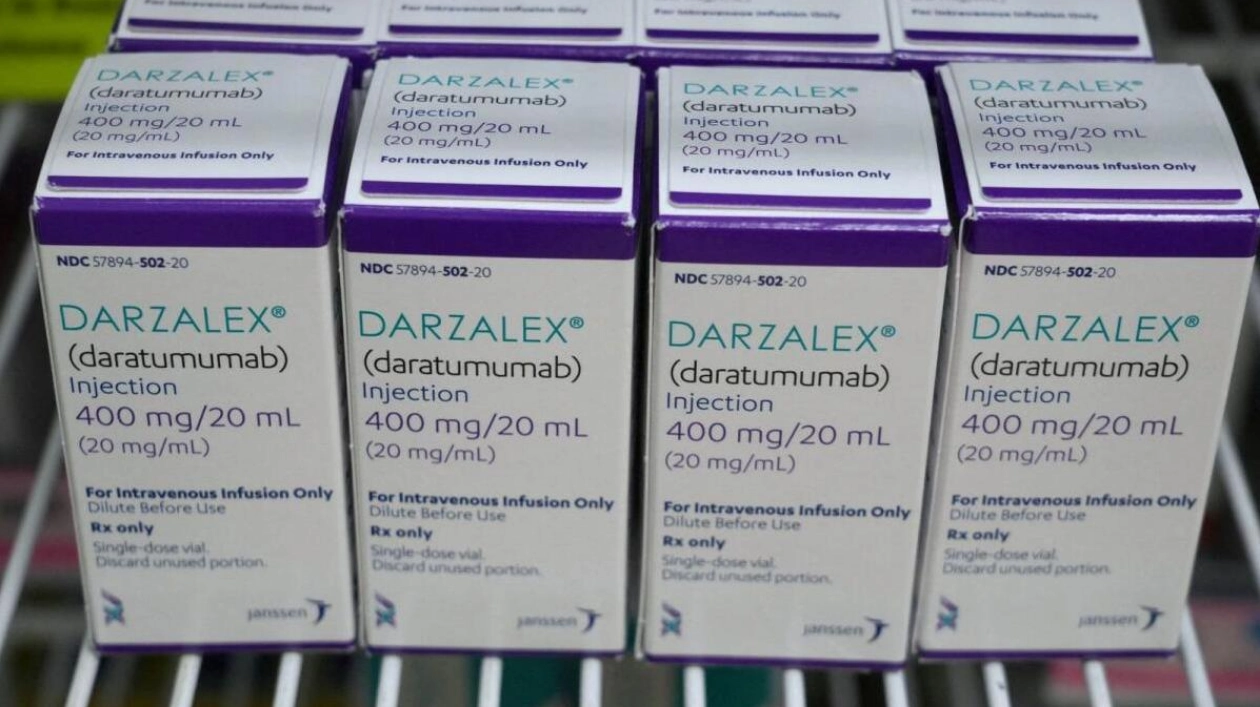Johnson & Johnson exceeded expectations for second-quarter profit and revenue on Wednesday, fueled by robust sales of its pharmaceuticals, notably cancer treatment Darzalex and the top-selling psoriasis medication Stelara. The company's shares climbed 1.4 percent to $153.15 in volatile premarket trading. Revenue reached $22.4 billion, surpassing the consensus estimate of $22.3 billion, according to LSEG data. Adjusted earnings per share stood at $2.82, outpacing analysts' forecasts of $2.70 per share. Stelara sales increased by 3.1 percent to $2.89 billion, exceeding the analysts' estimate of $2.77 billion, while Darzalex sales surged 18.4 percent to $2.88 billion, matching the analysts' average projection of $2.86 billion.
The New Jersey-based pharmaceutical giant revised its 2024 sales outlook to a range of $89.2 billion to $89.6 billion, up from its previous estimate of $88.7 billion to $89.1 billion. J&J also adjusted its annual earnings per share forecast to between $10 and $10.10, reflecting a 5-cent improvement due to enhanced performance and a 68-cent reduction stemming from merger and acquisition costs, including the $13 billion acquisition of Shockwave, a cardiac medical device company. This year, J&J has been active in acquisitions, including the May purchase of experimental skin disorder drugs in deals totaling $2.1 billion.
Sales in its medical technology segment rose 2.2 percent to $7.96 billion from $7.79 billion a year ago, but missed analysts' estimate of $8.17 billion. Analysts predict Stelara sales to surpass $10 billion this year, potentially dropping to around $7 billion in 2025 due to the anticipated launch of six biosimilar versions in the US. J&J's CFO, Joe Wolk, anticipates finalizing contracts within the next three months that will secure favorable US insurance coverage for Stelara in 2025.
Darzalex, introduced in 2015 as a blood cancer therapy, is projected to generate over $11 billion in sales for J&J this year. Sales of J&J's cancer drug Imbruvica, despite a 8.5 percent decline from the previous year, reached $770 million, outperforming analysts' estimate of $718 million. The company's cancer cell therapy, Carvykti, recorded sales of $186 million, a nearly 60 percent increase from the prior year, though it fell short of the $201 million analysts had anticipated. Limited supply has constrained Carvykti sales, prompting the company to enhance production capacity at its facilities in New Jersey and Belgium.






